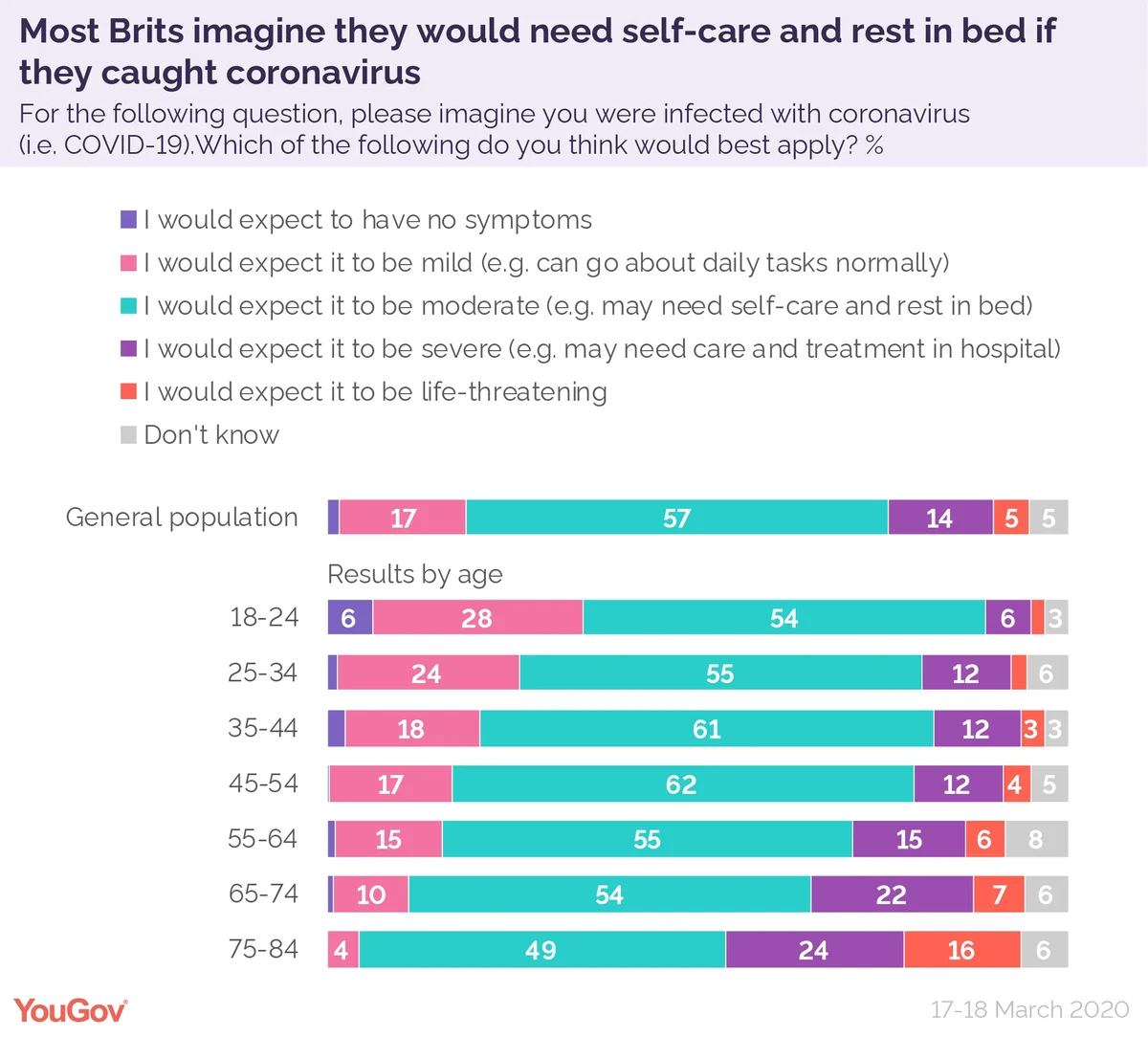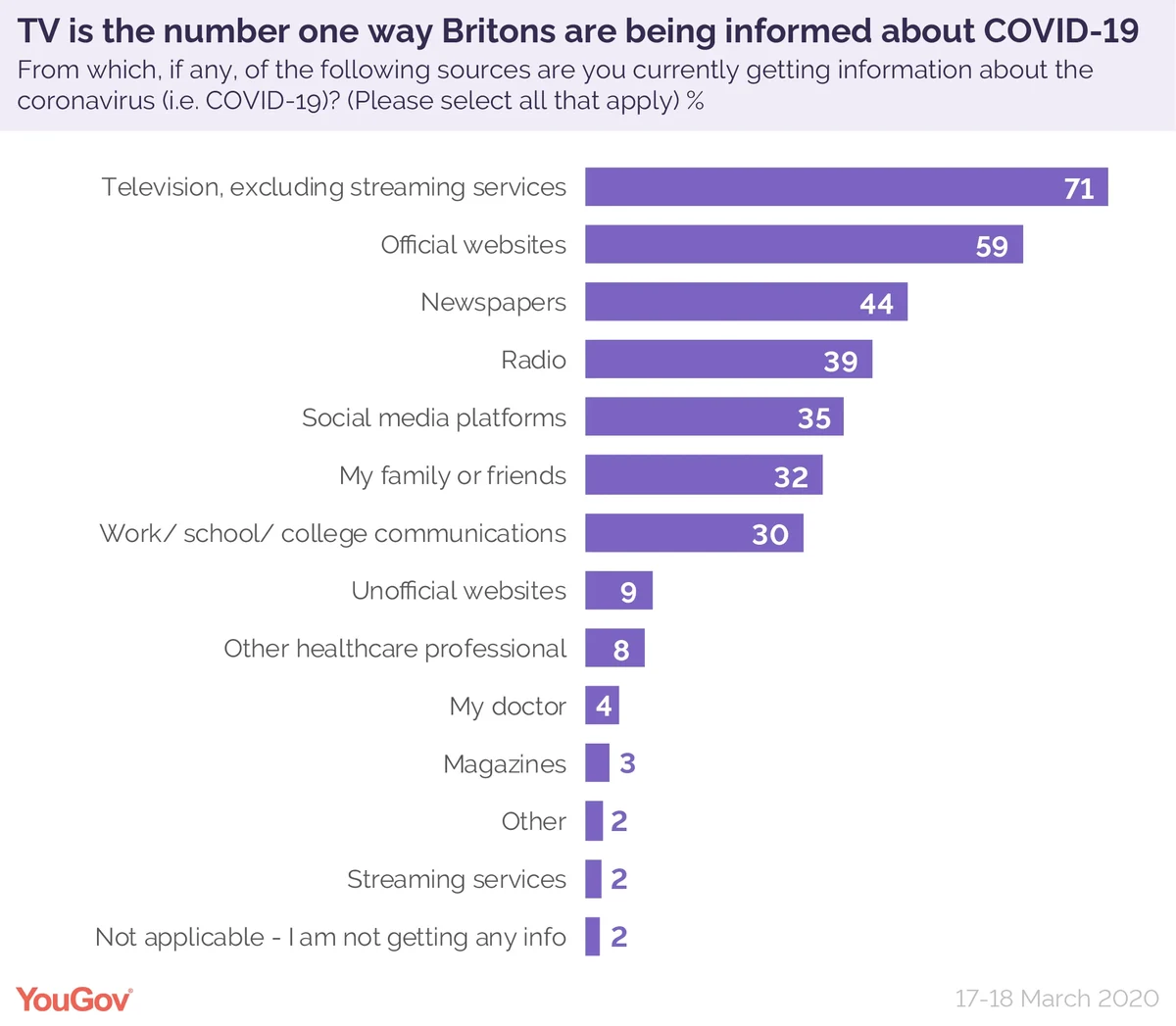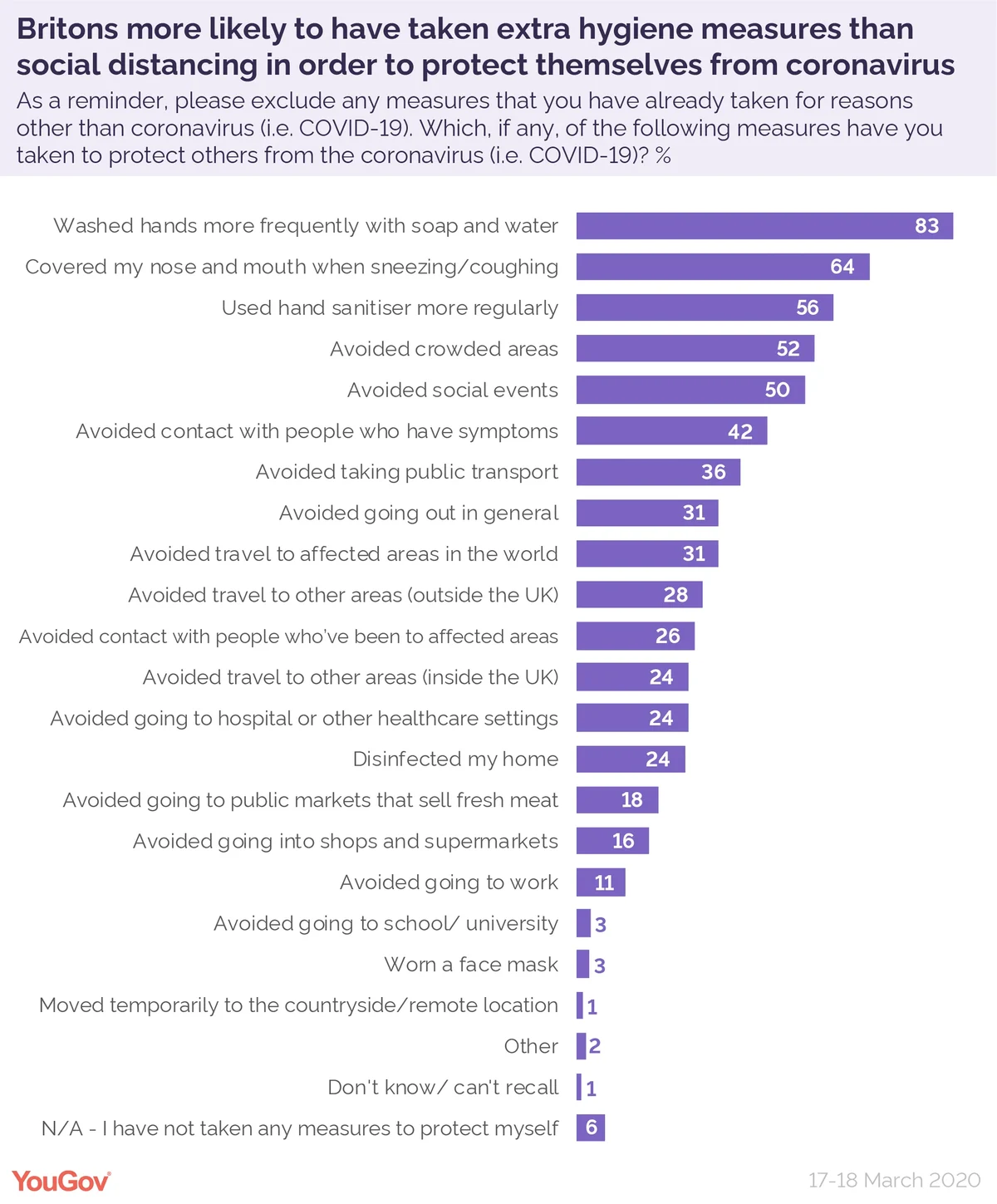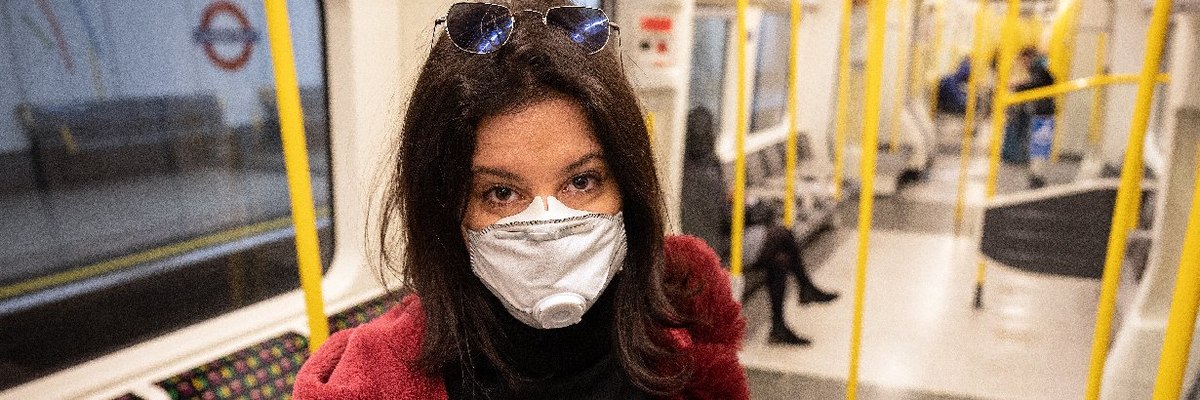A YouGov/Imperial College study looks at the public response to the coronavirus outbreak
As part of our contribution to tackling the coronavirus crisis, YouGov has been working with world-leading epidemiology experts at Imperial College, London to collect behavioural data that will help them – and others like them – better understand how people are responding to COVID-19. The data in this article comes from the first study conducted as part of this partnership.
Half of Britons expect to catch coronavirus, but most don’t think it will have a serious impact on their health
Three quarters of Britons report feeling very or fairly worried about the coronavirus outbreak in the UK. Women in particular are more likely to be worried, at 83% compared to 71% of men.
At this point half of Britons seem braced to catch COVID-19 – 48% of those who have not already caught the disease think they are either very or fairly likely to become afflicted.
Few Britons expect that their experience of the illness would be particularly severe if they did end up catching it. Around one in five (19%) believe they would encounter no symptoms or that their symptoms would be mild enough that they could go about their daily tasks as normal.
Most Britons (57%) think they will experience ‘moderate’ symptoms that may require self-care and bed rest. Only around one in five believe that their condition will be ‘severe’ (14%), potentially requiring hospital treatment, or be actively life-threatening (5%).

Unsurprisingly older people are more likely to think they are more at risk. Among 65-74 year olds the proportion who think catching COVID-19 would be a severe or life-threatening event is 29%, rising to 40% among 75-84 year olds. This compares to just 8% of 18-24 year olds who feel the same.
Britons are most likely to be getting information about coronavirus from TV
Television tops the list of sources from which Britons are getting information about COVID-19, with seven in ten (71%) saying so. Six in ten (59%) say they have sought details from official websites like the NHS or Public Health England website, while newspapers are the third most common resource at 44%.

Four in ten Britons (39%) are getting their information from the radio, while about a third are obtaining it from social media (35%) or family and friends (32%).
The older someone is, the more likely they are to be getting their coronavirus news from the television. While 51% of 18-24 year olds say they get their information this way, this rises to 91% of 75-84 year olds.
Television is the number one source of information for all age groups older than 35. For 25-34 year olds it is the second most common way people are getting information (after official websites), but for 18-24 year olds it is only fifth place, behind official websites, social media, work/school/college communications, and friends or family.
There is also a marked generational difference in usage of official websites. While as many as 73% of 18-24 year olds say they have been getting their information from sources like this (and indeed, it is the source this age group is most likely to be consulting), this falls to just 32% of 75-84 year olds (for whom it is the fourth most common outlet for COVID-19 news).
Most Britons have improved their hygiene routines in response to the outbreak
Britons are most likely to say they are washing their hands more frequently with soap and water (83%), covering their mouth when sneezing or coughing (64%), and using hand sanitizer more regularly (56%).

Notably, these are all hygiene measures, with Brits having been less likely to practice social distancing in response to the virus. About half of Britons say they are avoiding crowded areas (52%) and avoiding social events (50%).
The survey also reveals how effective Britons think the various measures are. Washing hands with soap and water tops this list as well, with 93% thinking it is very or fairly effective at preventing the spread of the disease. Similar numbers of Britons believe avoiding contact with people with symptoms will be effective (91%), covering up when they sneeze or cough (90%).
The vast majority of Britons are willing to self-isolate, and many have already made preparations to do so
Close to nine in ten Britons (88%) say they are willing to self-isolate for the recommended seven days should they be advised to by a medical professional. A near-identical proportion (87%) say they would be able to do so.
In fact, a majority of Britons (55%) say they have already taken steps to prepare for self-isolation. The most common is to stock up on food supplies, which 39% of Britons have done. A quarter have stocked up on toiletries (27%) and over-the-counter medicines like paracetamol (23%).
Photo: Getty









